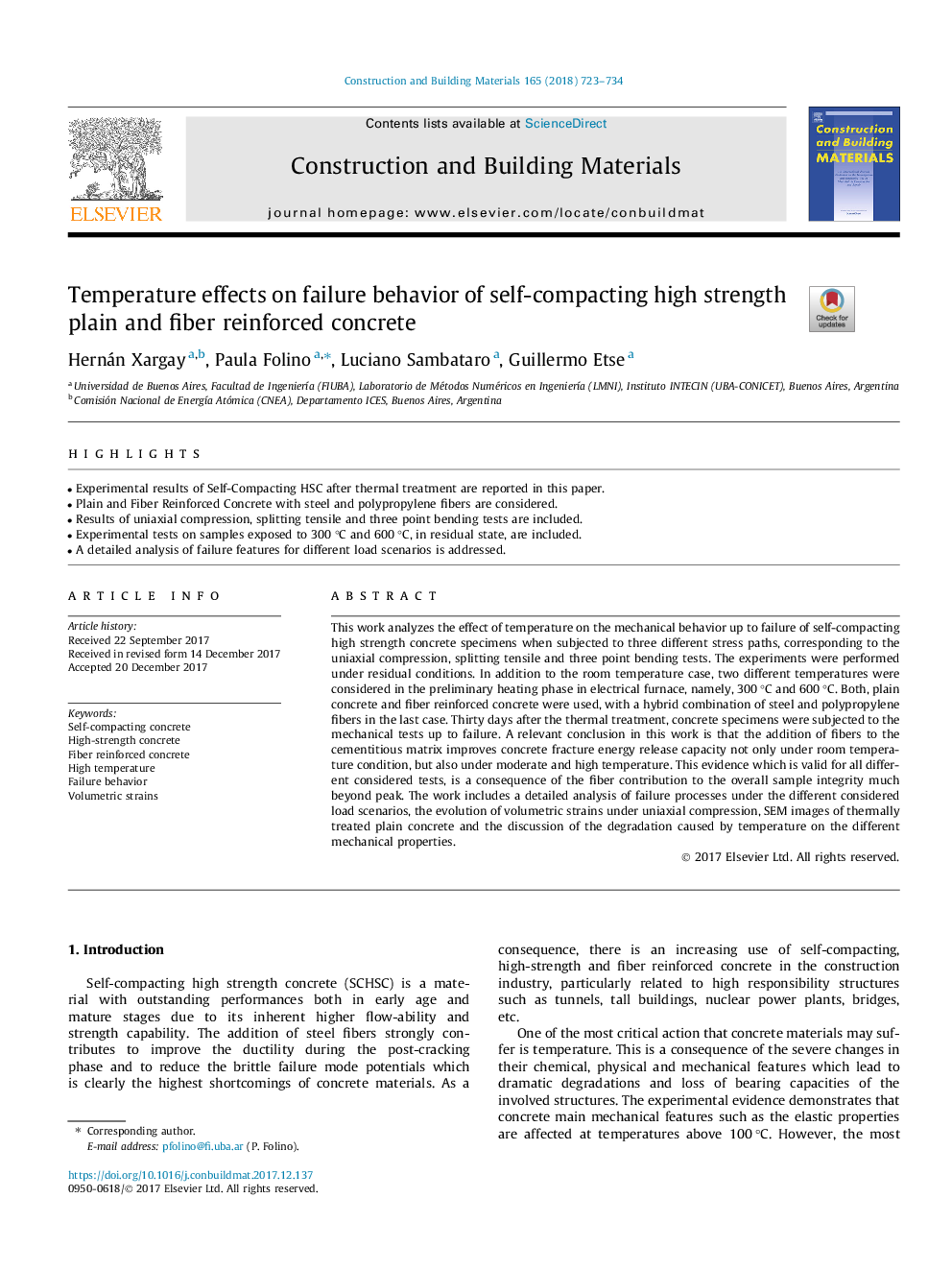| Article ID | Journal | Published Year | Pages | File Type |
|---|---|---|---|---|
| 6715737 | Construction and Building Materials | 2018 | 12 Pages |
Abstract
This work analyzes the effect of temperature on the mechanical behavior up to failure of self-compacting high strength concrete specimens when subjected to three different stress paths, corresponding to the uniaxial compression, splitting tensile and three point bending tests. The experiments were performed under residual conditions. In addition to the room temperature case, two different temperatures were considered in the preliminary heating phase in electrical furnace, namely, 300â¯Â°C and 600â¯Â°C. Both, plain concrete and fiber reinforced concrete were used, with a hybrid combination of steel and polypropylene fibers in the last case. Thirty days after the thermal treatment, concrete specimens were subjected to the mechanical tests up to failure. A relevant conclusion in this work is that the addition of fibers to the cementitious matrix improves concrete fracture energy release capacity not only under room temperature condition, but also under moderate and high temperature. This evidence which is valid for all different considered tests, is a consequence of the fiber contribution to the overall sample integrity much beyond peak. The work includes a detailed analysis of failure processes under the different considered load scenarios, the evolution of volumetric strains under uniaxial compression, SEM images of thermally treated plain concrete and the discussion of the degradation caused by temperature on the different mechanical properties.
Keywords
Related Topics
Physical Sciences and Engineering
Engineering
Civil and Structural Engineering
Authors
Hernán Xargay, Paula Folino, Luciano Sambataro, Guillermo Etse,
